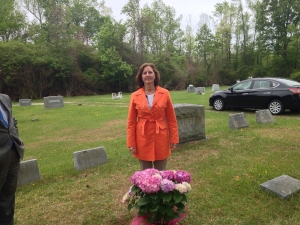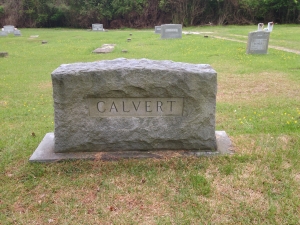Part I
 “Go eat dinner while it’s hot.” These were Mom’s last words thirty minutes before she died. Ever a mother until the end, she never wanted or intended to be a burden. Nor did Mom want us missing a meal, even if I was the one now preparing breakfast, lunch and dinner.
“Go eat dinner while it’s hot.” These were Mom’s last words thirty minutes before she died. Ever a mother until the end, she never wanted or intended to be a burden. Nor did Mom want us missing a meal, even if I was the one now preparing breakfast, lunch and dinner.
My father, sister and I ate at the dining room table, not far from their first floor bedroom. I had set the table with the silver and china, just the way she had done for the past 60 years of their marriage. Gracious dining was the highest art form for my mother. There was no take-out in her world.
She must have known that death was imminent, but she kept it at a safe distance by refusing to go to the hospital and maintaining normalcy. Ironically, this took more effort for us, her two daughters.
She had refused to accept outside help until the last few days when it became too difficult to lift her out of bed and accompany her to the bathroom. We tried to care for her in a way that wouldn’t strip her of dignity, which oozed through her every pore. Exhausted and angry at her stubbornness, I was in awe.
Barely able to walk or eat (she had been diagnosed with metastasized breast cancer eight months prior), she held onto the moldings of the doorways to get to the kitchen and bathroom. An old walker, left over from Dad’s past knee surgery, stood at the ready. She was averse to using the contraption, claiming it was too difficult to manoeuver through the narrow doorways. It was this same stubbornness that prevented her from undergoing any treatment for her cancer. “At eighty-six I’m not traipsing twenty miles for radiation,” she said.
As for bathing, she insisted on climbing the steep 1820 staircase, pulling herself hand over hand in order to take a shower upstairs. She shooed away any accoutrements of infirmity and death: commode, bedpan, wheelchair, morphine. “Save the Medicare dollars,” she insisted. We stood by, our own lives on hold, spotting her every move while she died her way.
Mom was standing upright when she vocalized for the first time that she might be dying. We urged her to sit down on the edge of the bed. Within minutes, she faded away. Do people actually die like this or only my mother?
With her sense of style and integrity, she was a role model in life. In death, she was the master of stoicism. Yet, I cringe at the thought of my children accompanying me to the bathroom for months on end in order to shower, dress and toilet. Maybe caretaking a parent is a child’s duty, but it’s the toughest thing I’ve ever done. Spending time with her at the end was also the best thing I’ve ever done.
Part II
I knew Mom couldn’t sit on my mantle forever. Our father, always economical, had opted for the basic black box. My sister and I had set an intention to bring her ashes back to her hometown, a place she deeply loved. We’d been waiting for the right moment.
This past weekend, nearly a year after Dad died and three years after Mom’s death, we headed to Jackson, N.C., a place so full of history, local color and third cousins that it seemed to have stepped off the pages of To Kill a Mockingbird.
Mom had made sure that we knew our southern roots by traveling back to her hometown at least twice a year until we were in college, when my grandparents died. She glowed when talking about her little corner of Eastern Carolina, recounting family anecdotes whenever she could manage to turn the conversation to her childhood. (She’d left soon after graduating University of North Carolina for the bright lights of New York City to become a buyer at Altman’s Department Store.)
After almost 30 years, Mom was going home. Not one to harp on death, she had never spoken of her wishes or a cremation plan – only an unspoken, “Don’t forget where you come from.” We needed to return as much for ourselves as for Mom. This was the place responsible for her pride and confidence. She was a woman whose straight posture and forthright manner was enviable, but never off-putting. Pared with her proper demeanor was a contagious southern charm. We all craved her company, especially now, on this last trip.
Traveling from the airport to a spec not even on the map, my sister and I shared what we remembered of our visits: the three maiden aunts who lived next door to our grandparents, shelling butterbeans with our Popi while he told stories about fighting at Verdun, Baptist Sunday School lessons with the head teacher, our Nana (we were half Jewish and, at the time, Unitarian).
My mother’s seventeenth-century ancestry meant so much to her and, through avid sharing of family genealogy, she instilled that in us. Her name was everywhere: street signs, stained glass church windows, the grave marker, bearing the name, CALVERT.
We placed her ashes back into the earth where our grandparents, great-grandparents and the other generations, reaching back centuries, surround her.
In awe, I could feel them welcoming our mother home.

